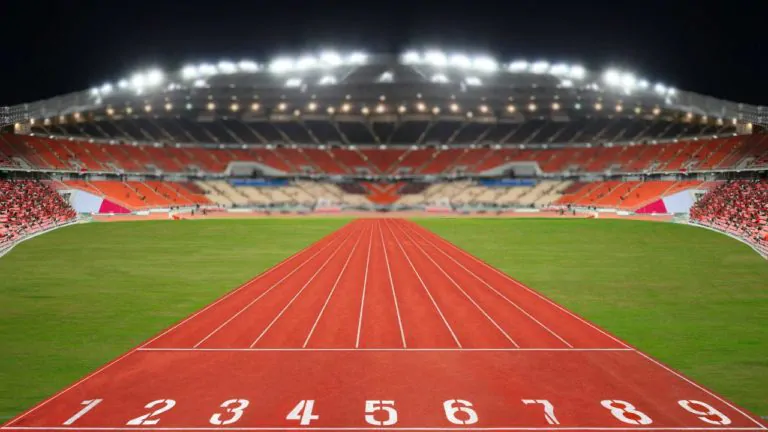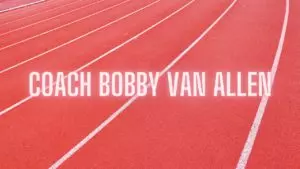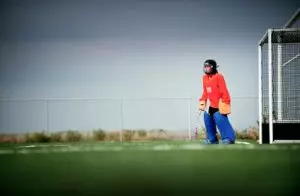Hunter Woodhall is a track and field athlete from Syracuse, Utah. At 11 months old, Hunter had both of his legs amputated below the knee from developing a congenital disability called fibular hemimelia. At 18 years old, he became the first double-amputee to earn a DI scholarship. He will be a Razorback at the University of Arkansas this fall. Between these two life-changing events, Hunter has created a story that has snatched the attention and hearts of the world. He used his accomplishments from being a state champion, a World Champion, and a Paralympian to help expand the minds of others as to what's possible.
2aDays: Did being a para-athlete affect your recruiting process? If so, how?
Not really. The fact that I'm missing my legs affects how people perceive me and my abilities. I had some help from connections within the track world to convince coaches that I'm just as able as any other athlete. Curiosity is the biggest thing, so they have questions about my training program if I can run on an indoor track, things like that. So it's just clarifying those things for coaches.
2aDays: Why did you decide to commit to Arkansas?
The minute I got to campus, it was a place that I felt comfortable at. I liked the program and the coaches a lot and the values that they stand for. The biggest thing for me is I know they'll make me a better athlete and student.
2aDays: What do you believe to be your biggest accomplishment both on/off the track?
The most rewarding thing is when someone reaches out to me to tell me that I have inspired them in any way and have helped impact their lives positively; that I can help someone else to be strong and follow their dreams. On and off the track, I want to help make it easier for people to get through daily life.
2aDays: How do you think the world, in general, could be better educated about para-athletics?
There's a lot of confusion surrounding the world of para-athletics. One of the biggest things is that people often confuse the difference between the Special Olympics vs. the Paralympics. So that's something we clarify for others. It's important to educate people that para-athletes are just like any other high-level athlete. Us competing on a higher stage is an example to prove that.
2aDays: What is one aspect of your journey that most people wouldn't know about?
Outsiders see the results on the track come meet day but what they don't see is the day-to-day work: my training and the number of hours I put into it; paying attention to my diet and making sure I'm fueling myself properly to perform; how I take care of my body post-practice to stay healthy. The little things.
2aDays: Who is your biggest inspiration?
My coach, Joachim Cruz, who I've been training with since I was 14 years old. He was a poor boy from Brazil and was told that his goals were unrealistic. He became an 800m Olympic champion. His story inspired me to chase my dreams, and I'm very fortunate to have him as my coach.
2aDays: What advice would you offer to someone in your situation who wants to pursue a career in sports?
Understand that it takes a lot of sacrifices. There will be tough choices you'll have to make, and sometimes you'll have to give up something now to gain something in the future. You can't go in half-heartedly; anything is possible with the right work ethic and mindset.
2aDays: Through life's challenges, what/who has kept you going?
Definitely my parents and family. Anytime I would get down on myself or think “This is too much,” they didn't let me off and encouraged me to keep pushing. My team keeps me going too. At practice, they continually push me which motivates me to get on the line over and over again to get to the next level.
2aDays: What does it mean to you to be an ambassador for Shriners Hospital for Children?
It's an absolute honor. The work they've done for me and others is outstanding. I truly would not be where I am today without them. They are the ones who amputated my legs, provide my prosthetics, and made my first running legs. So they've been there for me throughout my whole journey. They've given me confidence.
2aDays: Are there any improvements you'd like to see in the technology, equipment, or training in the para-athletics world?
I'm pretty confident in what is there now. There are a lot of great coaches, trainers, and resources available to us. I'm not too worried about technology because I don't want it to be about who has the best products to be better. I want it to continue being about who's the fastest and strongest to perform.
2aDays: Outside of track, what are your goals for the future?
Change the perception of others as to what's possible.
About the author:
Gabby Scott is a track and field student-athlete for Colorado University.
PERSONAL BESTS
INDOOR
200-meters: 25.57 (2016)
400-meters: 54.88 (2017)
OUTDOOR
400-meter: 54.32 (2017)
400-meter hurdles: 58.27 (2018)
* Originally published on October 14, 2017, by Gabby Scott







